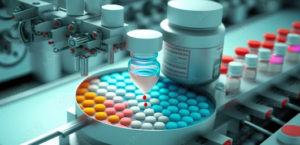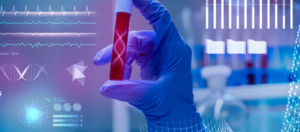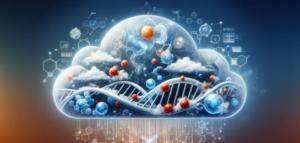The Technology Underlying Contemporary Medications

The technology underlying contemporary drugs is quite important in determining healthcare in the fast developing environment of today. From production and delivery systems to drug research, technology has transformed every facet of the pharmaceutical sector. This paper investigates the advanced technology ensuring their efficacy, safety, and accessibility that propel the creation of contemporary pharmaceuticals.
The Technology Underlying Contemporary Medications
High throughput screening
The road to developing new drugs starts with drug discovery. High-throughput screening (HTS) is among the main technologies applied in this stage. HTS lets scientists rapidly evaluate thousands of molecules for their medicinal value. Automating the testing procedure helps HTS speed up the identification of interesting drug candidates and save time and money related to drug development.
The Technology Underlying Contemporary Medications
Apart from HTS, computer-aided drug design (CADD) has grown to be a vital instrument. Computational models help CADD forecast the interactions between various compounds with biological targets. Higher specificity medications with less adverse effects are designed with this technology. Before synthesis, molecular docking simulations for example can forecast how well a medication would bond to its target, therefore guiding research to maximize medicinal efficacy.
The Technology Underlying Contemporary Medications
Clinical Investigations
Once a possible medicine has been discovered, it has to be thoroughly tested in clinical trials. Phases of clinical studies help to evaluate the safety, effectiveness, and ideal dosage of a medicine. Clinical studies now have much more accuracy and efficiency thanks in great part to advanced technologies in data collecting and analysis. For example, electronic data capture (EDC) technologies help to efficiently gather and handle clinical trial data, so guaranteeing dependability of results and easy access to review.
Personalized medicine and biomarkers
The use of biomarkers biological substances that show the presence or development of disease has transformed the way medications are examined and tailored. Finding particular biomarkers linked to an illness allows researchers to customize treatments to each individual, therefore improving the probability of effective results. Personalized medicine, this strategy, mostly depends on modern technologies as proteomics and genetic sequencing.
Manufacturing: Accuracy and Effectiveness
Biogenerics and Biotechnology
Particularly with the emergence of biologics drugs generated from live entities biotechnology has revolutionized drug manufacture. Protein, vaccination, and monoclonal antibody synthesis is made possible by methods including recombinant DNA technology. Many times, these biologics offer focused therapy for difficult diseases including several forms of cancer and autoimmune diseases.

Constant Manufacturing
Batch production in traditional pharmaceutical manufacture can be time-consuming and prone to fluctuation. Modern techniques improving uniformity and efficiency are constant manufacture. This technique enables constant medication synthesis, therefore lowering production time and costs and improving product quality by allowing for the continuous use of pharmaceuticals.
Drug Delivery Systems: Improving Efficiency
Nanoengineering
Novel drug delivery methods brought by nanotechnology help to better target and release drugs. By means of drug delivery straight to particular cells or tissues, nanoparticles can minimize side effects and maximize therapeutic results. Liposomal drug delivery systems, for instance, encapsulate pharmaceuticals using lipid-based nanoparticles so improving their bioavailability and durability.
Intelligent Drug Delivery Systems
Still another advancement are smart medicine delivery systems. These systems release medications in response to particular triggers, such pH or temperature by means of stimuli-responsive materials With exact control over drug release, such devices enhance patient compliance and treatment results.
Control and Regulation: Maintaining Standards
Modern Analytical Approaches
In pharmaceutical manufacture, quality control takes front stage. Modern analytical methods including mass spectrometry and high-performance liquid chromatography (HPLC) help to guarantee that medications satisfy strict quality criteria. These methods help to identify any possible contaminants or impurities by giving thorough knowledge on the composition and purity of a medicine.
Regulatory Compliance:
Oversaw of the pharmaceutical business is mostly dependent on regulatory agencies including the European Medicines Agency (EMA) and the U.S. Food and Drug Administration (FDA). To guarantee that drugs are safe and effective, these organizations impose strict policies for manufacturing, marketing, and drug development. Modern technology offers thorough documentation and traceability all through the medication development process, therefore facilitating adherence to these rules.

Future Directions: The Frontier of Pharmaceutical Technology Still to Be Reached
Machine Learning and Artificial Intelligence
Artificial intelligence (AI) and machine learning (ML) are poised to transform the pharmaceutical sector yet more. Analyzing enormous volumes of data, AI systems can find fresh therapeutic targets, project medication interactions, and improve clinical trial plans. By forecasting which molecules are most likely to be effective, machine learning algorithms can also improve drug discovery and speed the development process.
Genomic Medicine
The fast developments in genomics are opening the path for genomic medicine, in which therapies are customized depending on a personal genetic profile. Gene editing technologies include CRISpen-Cas9 provide means to fix genetic mutations linked to disorders. With less side effects and more effective therapies promised by this individualized strategy,
In summary, welcoming technological developments.
Modern drugs are evidence of human creativity and inventiveness since their technologies reflect this. From the early phases of drug development to production and distribution, technology has changed our approach to create and administer drugs. The pharmaceutical business will surely see even more revolutionary developments as we keep pushing new frontiers in artificial intelligence, genomics, and nanotechnology. Adopting these technologies not only improves the safety and efficacy of therapies but also helps us to reach a time when individualized, precision medicine will be the standard.
All things considered, the incorporation of cutting-edge technologies into drugs promises more efficient, customized therapies. Understanding and using these technical developments helps us not only to improve the way pharmaceuticals are developed and administered but also the general quality of healthcare available globally.